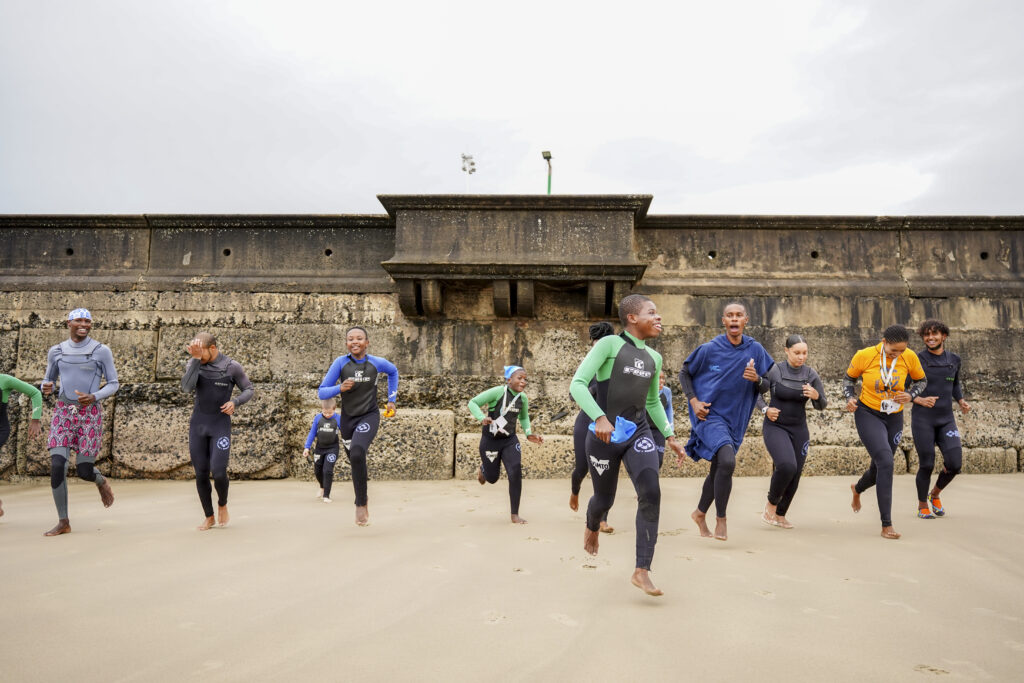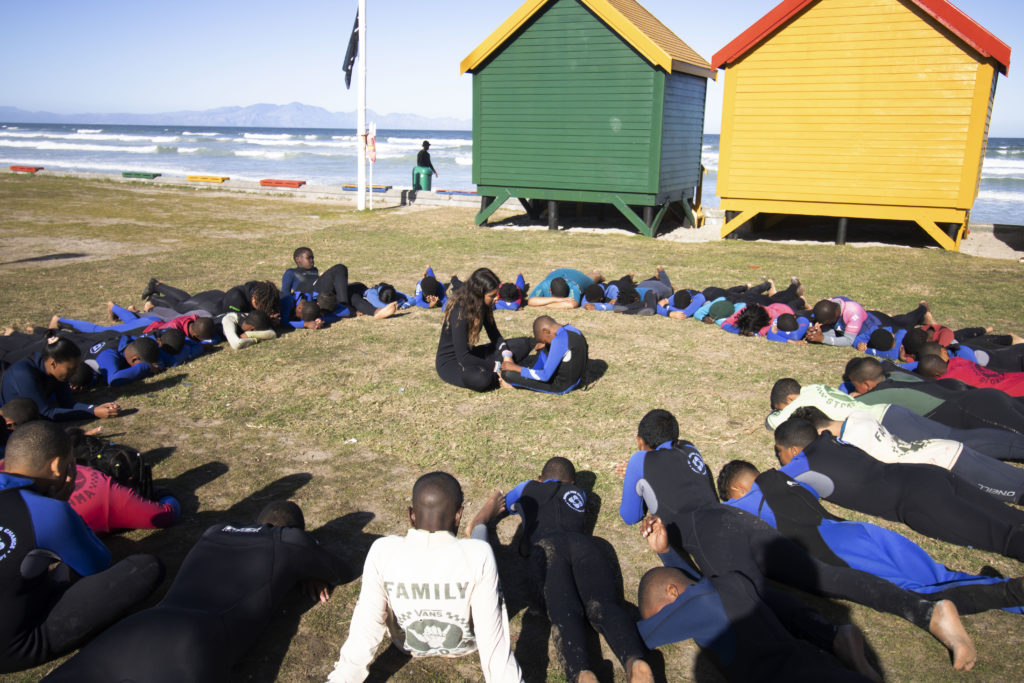Nywele Rembo – Beautiful Hair
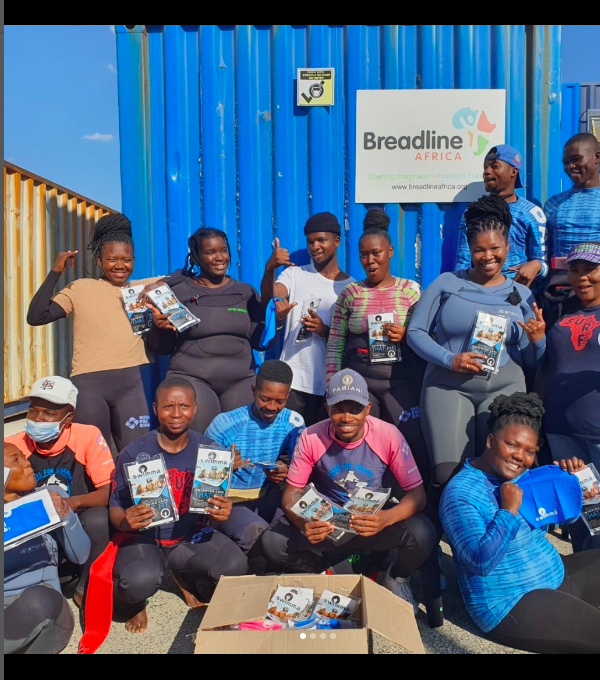
Waves for Change works with over 2000 participants annually across 5 beach sites. Of these participants, over 800 are girls, girls of colour. In 2017 Waves for Change undertook a research study to understand the cause of decreasing number of female participants in the programme. What the study presented was that the gender representation and consistency in the programme were aligned to how youth in the programme see and understand gender and gender norms. One of the key findings from this study identified how girls in the programme were dropping out of the programme due to their hair getting wet in the ocean and them not having protective covers such as swimming caps that fit and are tailored to the various protective styles done on Black African hair. This posed a challenge as one of the key pillars for the Waves for Change programme is creating an environment that facilitates a sense of belonging. Belonging based on the topic of hair is historically a challenging discourse due to the harsh discrimination against people of colour on the basis of their hair.
Waves for Change sought ways to find swimming caps that would be ideal for our participants. Unfortunately, there weren’t any designed in a way that was inclusive of the diversity of hair types and styles represented in the programme. In late 2021 we came across a South African born swimming cap brand, Swimma Caps. This brand proved to be aligned on various levels with the core values of creating safe spaces, giving young people a sense of belonging, and the company’s goal of opening up access to water activities.
African hair has a great history that predates colonialism and slavery on the continent. Thankfully companies like Swimma Caps, understand this history and cater to the importance of the narrative of beauty and celebration of natural hair.
Hair in Ancient Africa
Hair has always been more than just hair within African society. It was seen as symbolic for various aspects of one’s life and social standing. Across the different tribes and cultures in Africa, hair has different meanings. In the Western part of Africa, hair was a means to signify one’s marital status, age, wealth, and rank within the community. The most common hairstyle within present-day and historic West African communities are braids done in various styles and adorned with shells. Braids were not limited to women in ancient communities; men also adorned specific types of braids to signify time for war and also if they were unmarried.
On the topic of protective styles, which many of our participants adorn, such as braids, dreadlocks, and plaits, this too is deeply rooted in African culture and heritage. In Egypt, royalty often wore braided wigs which were made with pieces of human hair, wool, and palm fibers. Large headpieces were also an important part of distinguishing those of royalty not just in Egypt but across the African continent as a whole. This is also still a common practice in modern-day Africa. East African women culturally wore their hair in thin dreadlocks, cornrows and various styles of braids. The style of one’s braids would signify which tribe they were part of and whether they were married or single. Thick healthy hair was also associated with prosperity and life.
The natural hair revolution
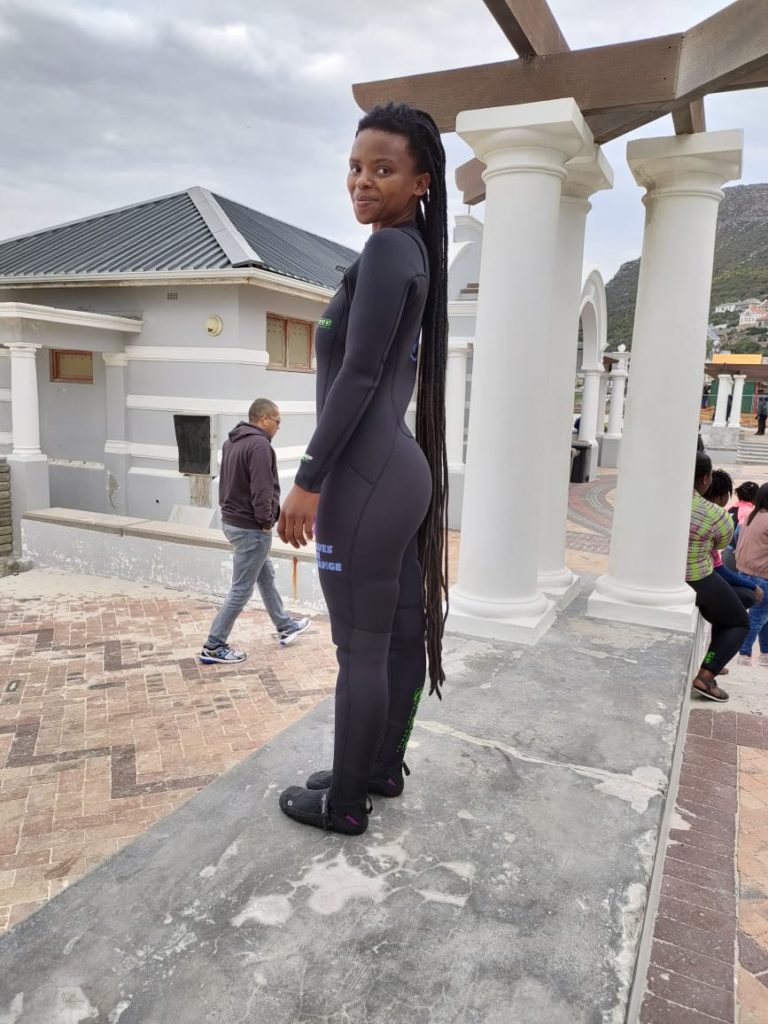
Products like the Swimma Caps are a big part of a necessary conversation on the intentional celebration of African hair. Growing up in various parts of the world, people of colour have had their natural hair shamed and undermined, which in most cases has translated into the lack of products or services for African hair, social biases towards African people in society, the perpetuating of harmful narratives about the beauty and professionalism of African hair and many other unfair stigmas.
However, hair has always been a revolutionary statement for Africans. Historic moments include how women used plaits, known as cornrows as a form of mapping escape routes when escaping slavery in South America. In September 2016, South Africa saw an uprising of youth around the country against laws within their schools that targeted African hair. At the forefront of this movement was Zulaikha Patel a 13 year old at the time who alongside her peers at Pretoria Girls High School stood up in protest against their schools discriminatory laws against African hair. Pan Africanist leader Marcus Garvey was noted in the 1920s as not only pioneering Pan Africanism but speaking boldly about the importance of Africans not using hair straightening products to remove their curls and kinks, but rather to remove the residue of bondage from their minds. In the United States of America
The CROWN Act of 2019, is a law that was enacted to prohibit discrimination against individuals based on hair style or texture.
We, however, cannot speak properly about the African hair revolution without featuring Nomvuyo Treffers, Founder of Swimma. Below is an interview Waves for Change did with her to find out more about her brand and the evolution of Swimma Caps.
What inspired the creation of Swimma?
Swimma Caps was inspired by my young daughters who have afro hair or what you could describe as high-volume hair. My daughters love swimming and they would regularly ask me to swim with them and I have long dreadlocks that I could not fit into any swimming cap available back then. It was a struggle for their afros too. I would make excuses for not joining them in the swimming pool and sitting on the sidelines.
I realised I was missing out on quality time with my daughters because they will grow up and once they are teenagers they won’t want me to swim with them anymore. Instead, they will rather choose to swim with their friends. We also have a gym membership with access to a swimming pool all year round. At the gym wearing a swimming cap while using the pool is compulsory and that was also restrictive for me because there was no swimming cap big enough for us. And this surely had to be an issue for many people like us.
My frustration that had been brewing for years, grew. I kept looking for a solution for myself and I realised we live in South Africa, on the continent of Africa, where many people look like us and likely have the same issues as we were experiencing. We could not be the only ones facing the issue. That’s when I decided to launch Swimma Caps.
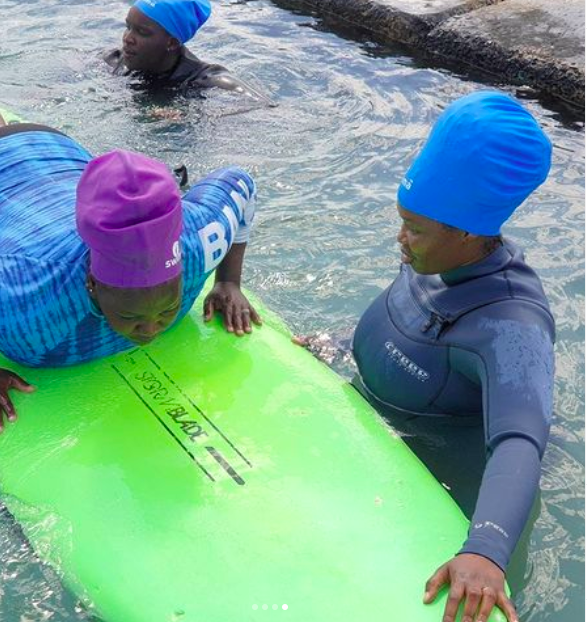
In your opinion can you share if you have noticed any connection between representation and inclusion, and improved wellness?
You only need to watch the news and social media to see how mental health problems are affecting many people. There is no doubt that exclusion, the feeling of not being important, the notion of having to fit into a certain culture, body image, lifestyle, etc, contributes greatly to feelings of unhappiness or inadequacy. I am hopeful that Swimma can in some way help in taking part of that feeling away. I started this company to show that people are catered for and that their particular requirements are understood – and this extends to much more than just a product.
What do you believe has been Swimma’s greatest contribution to inclusion in sports?
Seeing young kids in pools, with caps that actually fit and swimming in a carefree way is a testament to our contribution. Whether it is recreational or competitive swimming, we have made it a lot easier to jump in. The same goes for adults – we have seen so many who are now learning to swim. The last thing you need when learning is another worry and Swimma ensures that at least the hair is not a concern.
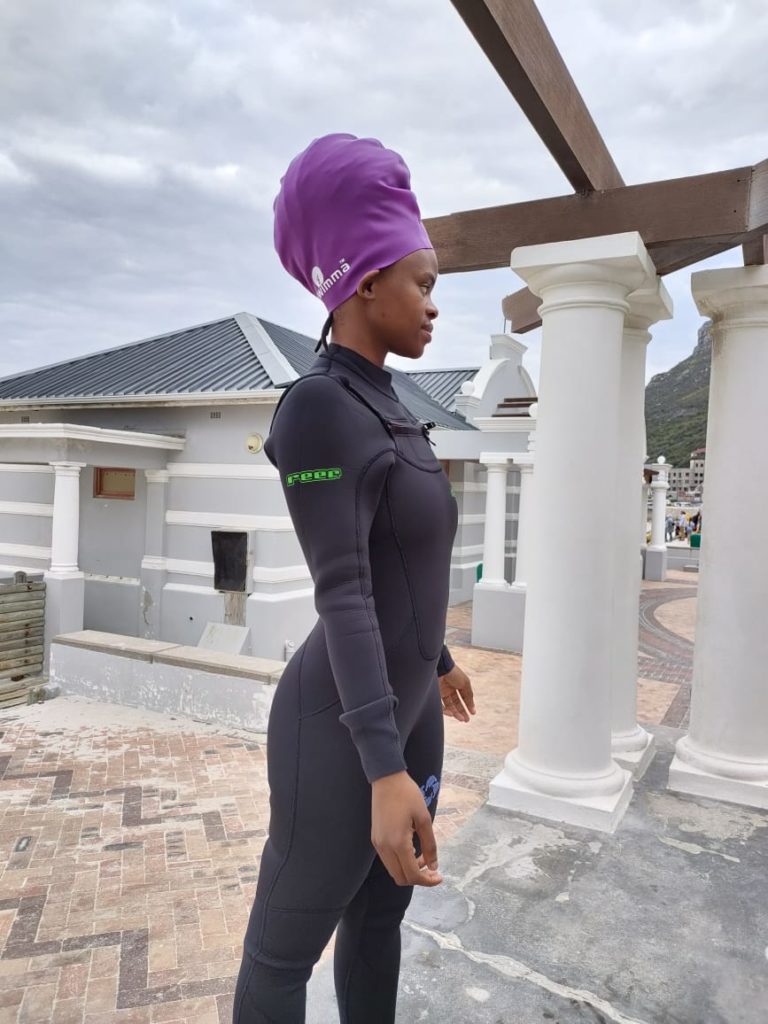
What are your hopes for the impact of Swimma caps being used at Waves for Change sites?
My hope is that Swimma can play a small role in achieving the therapeutic goal of Waves for Change. For swimmers and surfers at Waves for Change to feel included and enjoy swimming & surfing without being concerned about their hair.
Any additional thoughts or comments to share with the Waves for Change team and community?
It was a privilege to visit your Monwabisi site, to experience your programme, and experience the sense of community and support at Waves for Change, which made me fall more in love with the work of the organisation. I know for sure lives are positively impacted. I love what you are doing – Keep up the good work!
Nywele Rembo – Beautiful Hair
When choosing the title for this blog I thought long and hard about what I wanted this piece to embody and communicate. I believe I would have done my ancestors a great disservice had I not centralised this piece on the beauty and strength of African hair, and so it had to be called exactly that ‘Nywele Rembo’ meaning beautiful hair in Swahili, the most widely spoken African language in the world.
Race and discrimination have been some of the key drivers behind the ever-growing economic and mental health crisis for Africans worldwide. Spaces like Waves for Change are at the forefront of mental health and inclusion. One of the responsibilities which come with championing mental health is the understanding that mental health is layered and is a bigger conversation than just focusing on your mind and feeling well but the consistent support your mind requires in order to feel well. Something we also see communicated through the 5 Pillar approach for mental well-being used in the Waves for Change programme curriculum which focuses on aspects such as safe spaces, belonging, connection, and the value of continued support systems.
We cannot tackle mental illness nor champion mental well-being if we do not take note of the little things that become big things, the recognition and inclusion of hair texture and hairstyles may be a small thing for others but I am so glad it’s a big thing at Waves for Change. Thank you Swimma for recognising with us that African hair is beautiful and worth celebrating. Asante sana! – Aviwe Funani, Advocacy and Policy Manager
